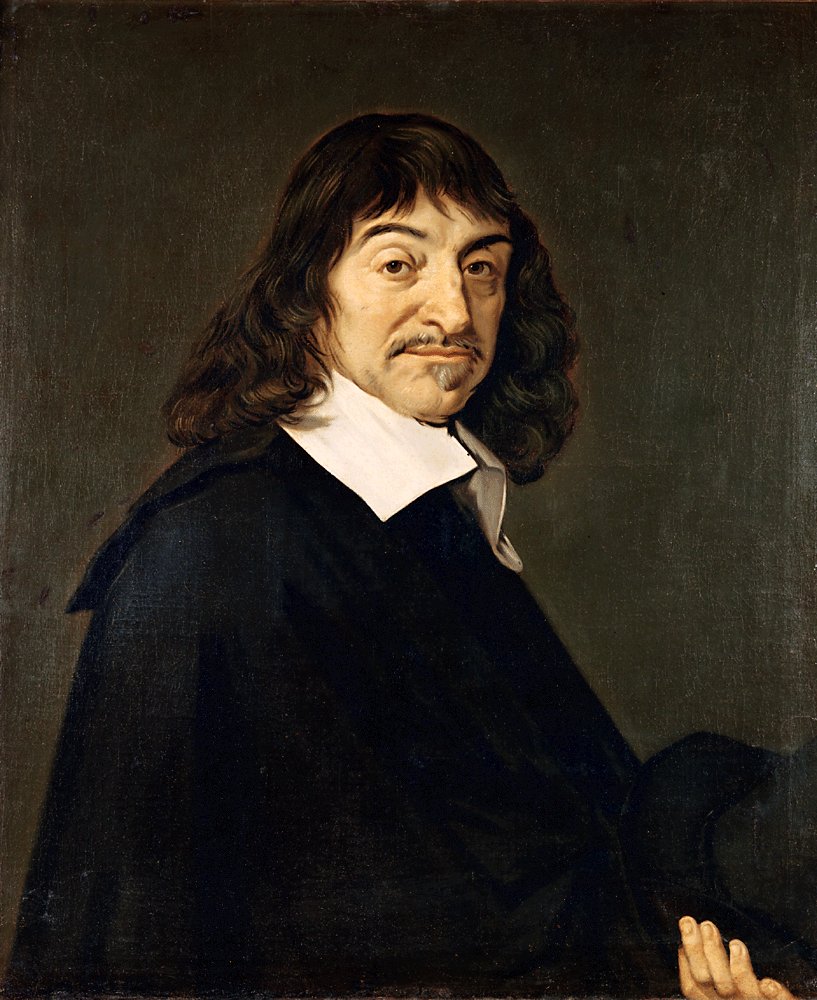René Descartes híres idézetei
Neki tulajdonított idézetek
René Descartes Idézetek az emberekről
René Descartes idézetek
„… a megismerés nagyobb tökéletesség, mint a kételkedés …”
Neki tulajdonított idézetek
„… barátaink ítéleteit is gyanúval kell fogadnunk, ha kedvezők ránk nézve.”
Neki tulajdonított idézetek
„Kételkedem tehát gondolkodom, gondolkodom tehát vagyok, vagyok tehát Isten létezik.”
Neki tulajdonított idézetek
Eredeti: Dubito ergo cogito, cogito ergo sum, sum ergo Deus est.
„Ha nem tudjuk felismerni a legigazabb nézetet, a legvalószínűbbet kell követni.”
Neki tulajdonított idézetek
Neki tulajdonított idézetek
„… a kísérletekre annál inkább szükség van, minnél előbbre haladtunk a megismerésben.”
Neki tulajdonított idézetek
René Descartes: Idézetek angolul
“With me, everything turns into mathematics.”
Mais apud me omnia fiunt Mathematicè in Natura More closely translated as: but in my opinion, all things in nature occur mathematically. Note: "Mais" is French for "but" and the "but in my opinion" comes from the context of the original conversation. apud me omnia fiunt Mathematicè in Natura is in latin. Sometimes the Latin version is incorrectly quoted as Omnia apud me mathematica fiunt. Sources: Correspondence with Mersenne http://fr.wikisource.org/wiki/Page%3aDescartes_-_%C5%92uvres,_%C3%A9d._Adam_et_Tannery,_III.djvu/48 note for line 7 (1640), page 36, Die Wiener Zeit http://books.google.com/books?id=9Xh3fVZLCycC&pg=PA532&lpg=PA532&dq=%22Omnia+apud+me+mathematica+fiunt%22+original+zitat&source=bl&ots=CgQOrveRiM&sig=WFHwIK20r5vRZ66FwCaxo857LCU&hl=de&sa=X&ei=_Wf2UcHlJYbfsgaf1IHABg#v=onepage&q=%22Omnia%20apud%20me%20mathematica%20fiunt%22%20original%20zitat&f=false page 532 (2008); StackExchange Math Q/A Where did Descartes write... http://math.stackexchange.com/questions/454599/where-did-descartes-write-with-me-everything-turns-into-mathematics?noredirect=1#comment978229_454599
“I doubt, therefore I think, therefore I am.”
Cogito, ergo sum.
Változat: Dubito, ergo cogito, ergo sum.
(English: "I doubt, therefore I think, therefore I am")
Letter to Marin Mersenne (end of Feb., 1634) as quoted by Amir Aczel, Pendulum: Leon Foucault and the Triumph of Science (2003)
Me tenant comme je suis, un pied dans un pays et l’autre en un autre, je trouve ma condition très heureuse, en ce qu’elle est libre.
Letter to Elisabeth of Bohemia, Princess Palatine (Paris, June/July 1648)
Rules for the Direction of the Mind in Key Philosophical Writings (1997), pp. 29-30 http://books.google.com/books?id=jjWPe-9NPoEC&pg=PA29
Letter to Marin Mersenne (1637) as quoted by D. E. Smith & M. L. Latham Tr. The Geometry of René Descartes (1925)
“With me, everything turns into mathematics.
More closely translated as: but in my opinion, all things in nature occur mathematically.”
Mais apud me omnia fiunt Mathematicè in Natura
""Mais"" is French for ""but"" and the ""but in my opinion"" comes from the context of the original conversation. apud me omnia fiunt Mathematicè in Natura is in latin.
Sometimes the Latin version is incorrectly quoted as Omnia apud me mathematica fiunt.
Sources: Correspondence with Mersenne http://fr.wikisource.org/wiki/Page%3aDescartes_-_%C5%92uvres,_%C3%A9d._Adam_et_Tannery,_III.djvu/48 note for line 7 (1640), page 36, Die Wiener Zeit http://books.google.com/books?id=9Xh3fVZLCycC&pg=PA532&lpg=PA532&dq=%22Omnia+apud+me+mathematica+fiunt%22+original+zitat&source=bl&ots=CgQOrveRiM&sig=WFHwIK20r5vRZ66FwCaxo857LCU&hl=de&sa=X&ei=_Wf2UcHlJYbfsgaf1IHABg#v=onepage&q=%22Omnia%20apud%20me%20mathematica%20fiunt%22%20original%20zitat&f=false page 532 (2008); StackExchange Math Q/A Where did Descartes write... http://math.stackexchange.com/questions/454599/where-did-descartes-write-with-me-everything-turns-into-mathematics?noredirect=1#comment978229_454599
Letter to Marin Mersenne (July 27, 1638) as quoted by Florian Cajori, A History of Mathematics (1893) letter dated in The Philosophical Writings of Descartes Vol. 3, The Correspondence (1991) ed. John Cottingham, Robert Stoothoff, Dugald Murdoch
“Discourse on the Method of Rightly Conducting the Reason, and Seeking Truth in the Sciences”
Le Discours de la Méthode (1637)
